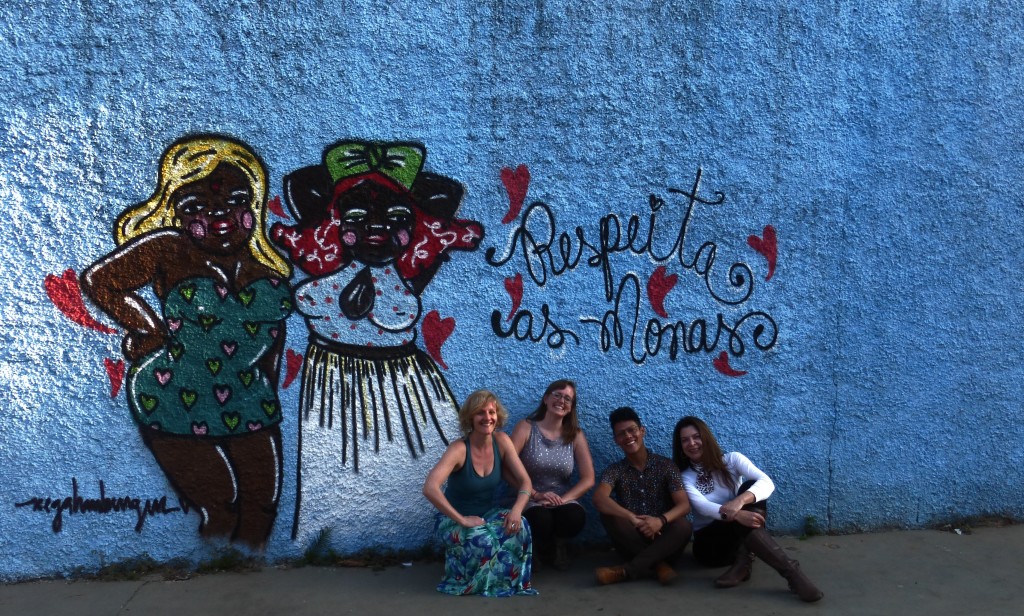Blog #7 Knowledge Exchange Trip: Florescer by Bethan Prosser
 My last visit in Sao Paulo was to the first trans homeless shelter in Brazil, named Florescer (to bloom /flower), which opened 4 months ago. I visited with Denise, one of the professors setting up the Gender Identity clinic at UNIFESP, and Eduardo, Phd student doing research with the trans homeless community. It was impressive to meet with the coordinator and see what they’ve managed to set up in such a short amount of time.
My last visit in Sao Paulo was to the first trans homeless shelter in Brazil, named Florescer (to bloom /flower), which opened 4 months ago. I visited with Denise, one of the professors setting up the Gender Identity clinic at UNIFESP, and Eduardo, Phd student doing research with the trans homeless community. It was impressive to meet with the coordinator and see what they’ve managed to set up in such a short amount of time.
A particular challenge has been Florescer’s location right next door to a male homeless shelter, which has posed risks due to the high levels of transphobia. However they’ve been working hard with the next door shelter’s staff and put in place protocols that seem to be working. It has now got to the point whereby two of the Florescer residents work in the kitchens of the male shelter and the staff are dong training and education workshops there as well. In the beginning days it was difficult to get people to move into the Florescer, however now about 3 people a day come to view the shelter. Trust is building up with staff as the shelter develops and the worker I spoke with appeared to be working longer and longer hours to meet the demands and needs of the residents as they start to make use of the services. Currently there are 12 residents, 5 support workers, one manager and several kitchen and cleaning staff alongside a psychologist and social worker attached the shelter.
The shelter has come about due to the hard work and lobbying of several professionals working in this field and an eventual acceptance by authorities that a specific shelter for the trans community was required. As knowledge of the shelter grows, they are getting more people knocking on the door wanting to do projects with the residents. The manager is being a careful gatekeeper and ensuring these projects are needed and desired by the residents. Thus there is a group from UNIFESP already working on a homeless project that have started to come to the shelter to develop some outreach work. And Denise is starting to build up a relationships for mutual benefit with the new UNIFESP gender identity clinic. When I asked what staff might want from any partnerships with universities, the coordinator replied that from an education point of view, one of the residents has just passed exams to get into university, so their current main interest would be about access to university and opening up the possibilities of education. The trans / ‘tranvesti’ community in Brazil are severely marginalised, with an average life expectancy of 30 in a country that has the greatest number of murdered trans people worldwide (see some stats here). Within this context, the efforts of Florescer, its staff and researcher activists to work with the community to improve the situation are both impressive and imperative. I felt very fortunate to visit the centre and meet some of its residents as part of my trip.